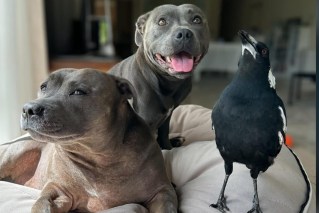Pet, darling, sweetheart – the cultural minefield confronting our teachers
From pet names to playground hugs and wiping tears, our teachers face an ever-growing list of behaviours that are now out-of-bounds. A recent Twitter debate suggests the argument is a long way from decided, writes Madonna King


The Opposition says new teachers are quitting the profession in droves, while the State Government says workforce retention is stable. Photo: resilenteducator.com)
What’s in a word?
That was the twitter debate started by a teacher in the United Kingdom this week – and it quickly became global.
“Having a bit of a wobble,’’ @Mrs_G33k said, from Kent. Since becoming a teacher, she’d always called children ‘sweetheart’ or ‘darling’. Always in a motherly way, she added, in the same way she would speak to people outside the school grounds.
But lately, she’d noticed how people believed that was wrong; the twitter verdict judged that it was “eww and yucky’’. She asked: “Have I been causing some damage to them?’’
Now, teachers have a tricky job at the best of times. But where would you sit here? Going on the responses – hundreds and hundreds of them from teachers across the world – it’s not as simple as it sounds.
“Men never speak to students this way,’’ one male teacher responded. And he was supported by others.
Others went further, though. “Totally inappropriate,’’ a secondary school guidance officer – with 30 years’ experience – opined.
“In our child protection sessions, we were advised against this as it can be misconstrued and potentially lead students on,’’ another teacher offered.
And so it went on.
“I wouldn’t be happy knowing colleagues were using these terms … I don’t think sweetheart and darling are appropriate ways to address children you work with.’’
A maths-turned-English teacher said she now avoided the terms, after a “safeguarding course’’ explained a name could act as a trigger for some children.
“What absolute twoddle,’’ one offered. “Says more about them than you!’’
“Just be yourself. I’ve never known a child who suffered from a little kindness.’’
“Stop worrying what other people think, especially on Twitter. As long as they’re happy in your classroom and no parents are concerned, what’s the problem?’’
“When my daughter was four, the teacher called her (an) ‘unteachable devious child!’. Darling would have been much better,’’ a mother said.
But there are nuances and regulations and school rules and expectations, it seems, and they are all different.
Cultural issues needed to be considered, a teacher who has taught in several countries explained, before relaying how a colleague had caused offence by calling pupils ‘pet’. “These children interpreted it as ‘she is calling us animals.’’
And gender issues needed to be considered too; perhaps gender-neutral terms like ‘sweet pea’ and ‘my lovely’ were better endearment terms. And it was less “creepy’’ coming from a female teacher.
Also, 2021 was different to 2005. Sixteen years ago, one teacher explained, they called their class a “bunch of monkeys’’. “Today I don’t know.’’
“I treat my class the way I’d want my own child treated – which as much love as I can throw at them – pet, darling, sweetheart.’’
“They are my children from 9-3.30pm and I’ll treat them as such … hugs, wipe tears, jokes, pet names – sweetie/sweetheart, honey, darling, chick, munchkin, mate, dude…’’
So what do you think? And should language be part of the current debate about the urgency and importance of gender equality?
For my vote, the last word goes to Anne, also from England. “I have learnt that whatever you do, however you do it, in teaching there will always seem to be someone who thinks you are wrong…but also lots of people who think you are right.
“All you can do is to go with whatever feels right for you.’’
Good plan, mate.













